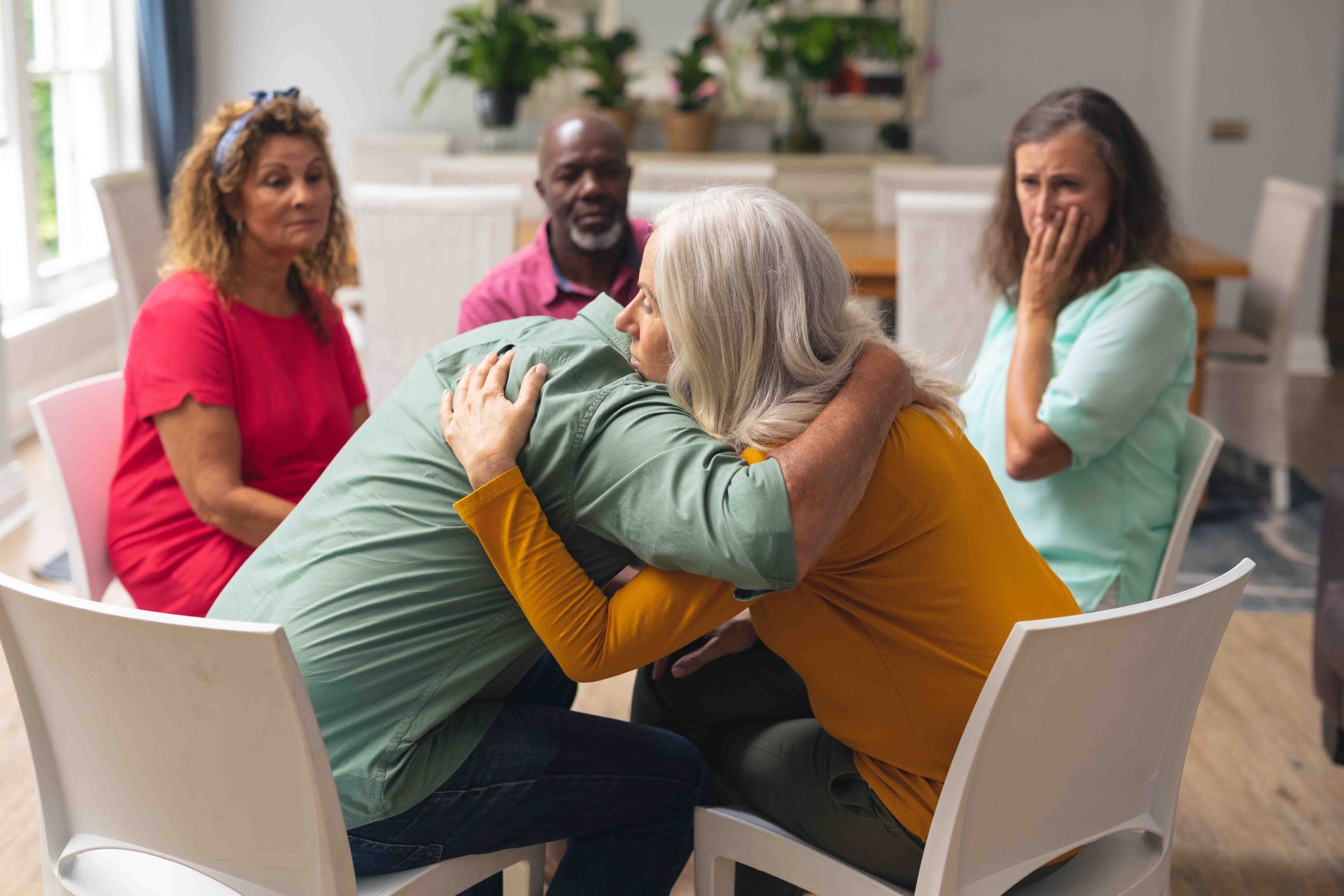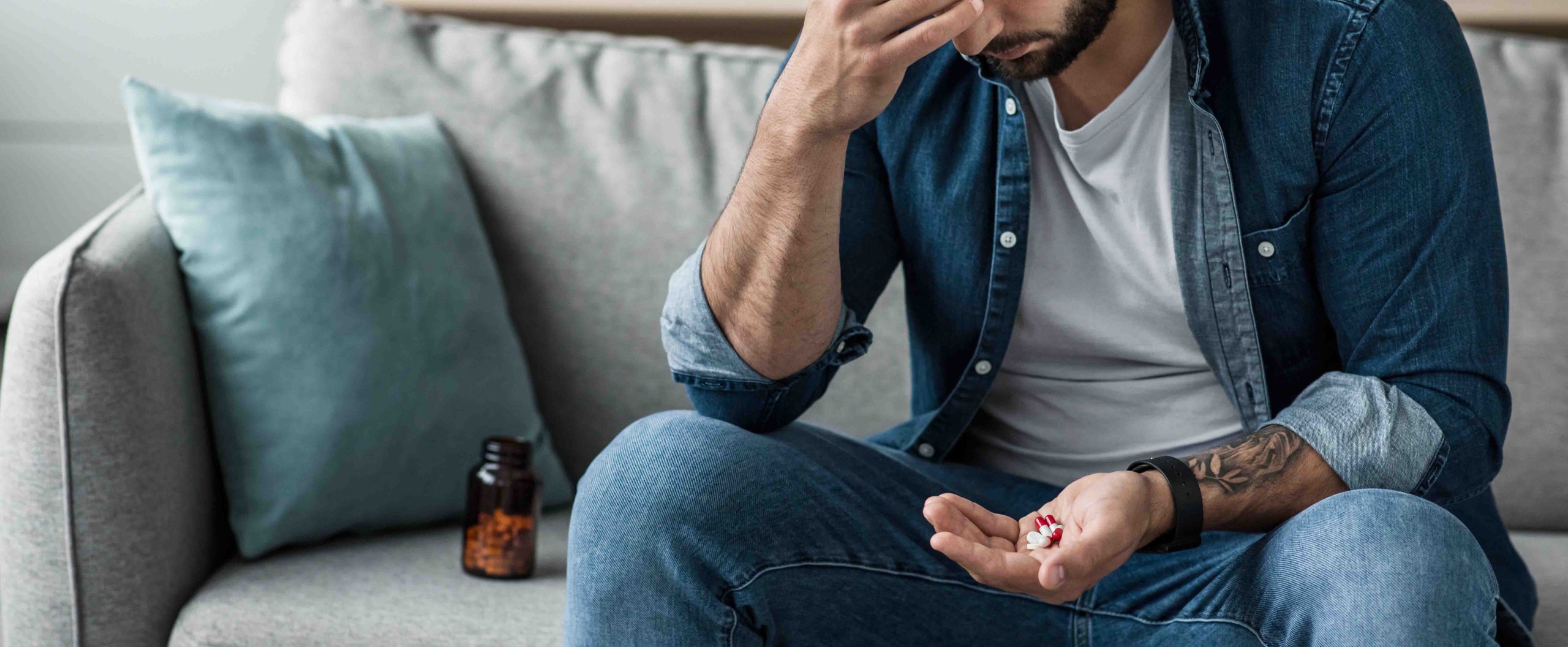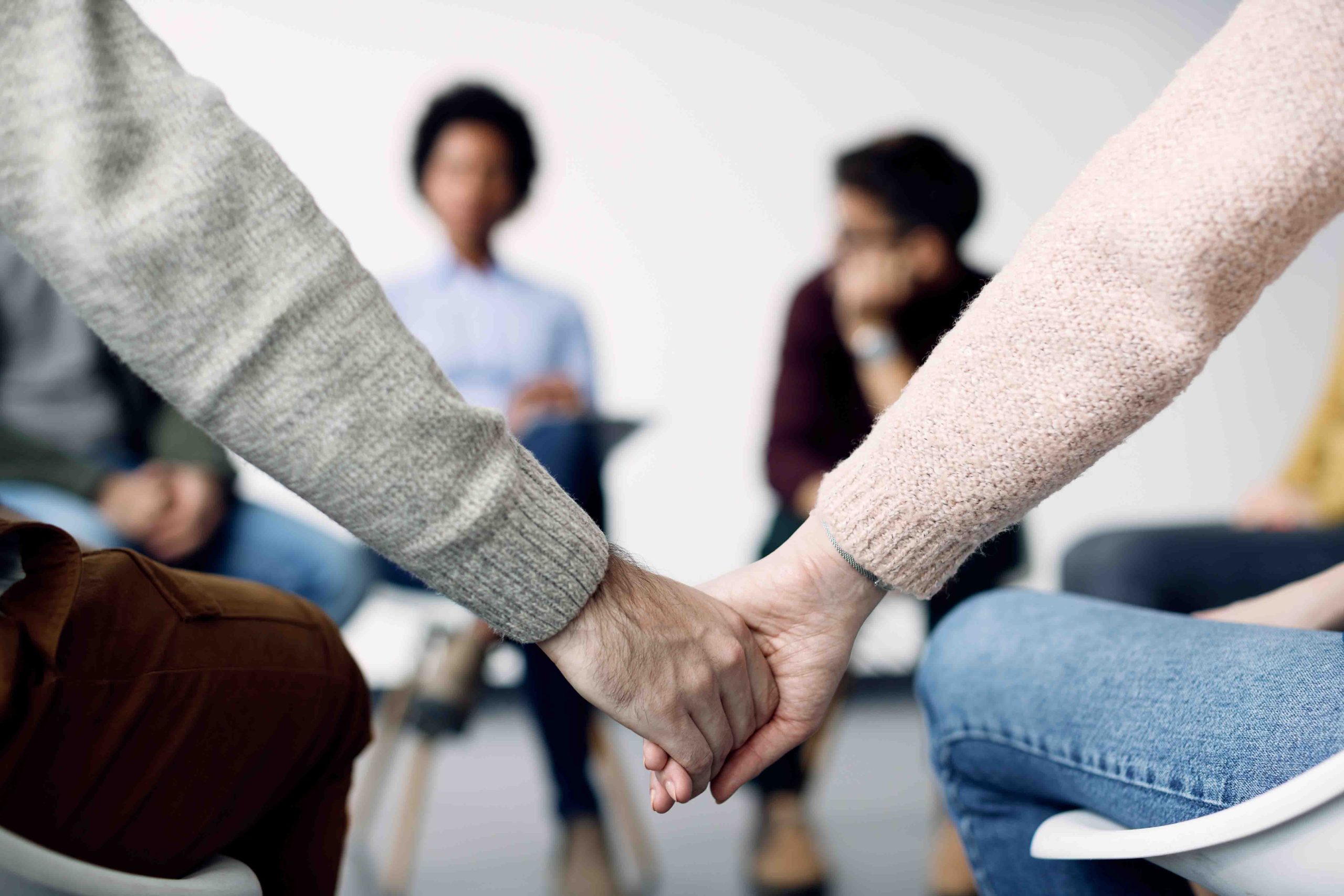I would like to begin this article firstly, by unpacking the title of the article itself, paying attention to what each of its parts means to me. Without wishing to enter into a very sophisticated and philosophical debate, at least, I wish to allude to what I mean by «therapeutic power», «group therapy», and «addictions», before identifying the benefits of group therapy in the treatment of addictions.
So what do we mean by «therapeutic power»? I believe therapeutic power resides or is based primarily on the relationship that is established between the clients and the therapist. I believe that this relationship is very special for several reasons.

First of all, this is an asymmetrical relationship, in which clients provide much more information about themselves, expose and express themselves. Obviously, they do so more than I do – after all, the goal of therapy is to help them. That does not detract from the fact that as a therapist, I may reveal some personal information – although on this point I know some colleagues will disagree – but always keeping in mind the client’s needs and the value of self-disclosure as a strategy.
I also consider the therapeutic relationship to be special because it is, in my opinion, sustained by a bond of trust and confidence that is established and forged. The bond of trust is worked from the beginning, and as a therapist, I facilitate it by taking care of the welcoming process, being emotionally present at all times, showing myself as I am, trying to empathize by putting myself in the client’s shoes, and avoiding generating value judgments about good, bad, right and wrong.
One of the purposes of this relationship is to generate an alliance, a balanced team in which everyone contributes. My clients are specialists in themselves, they bring their knowledge and life experience, and their particular vision of life. As a therapist, I may bring my knowledge and experience in therapy and psychology, but I will never know more about them than they know about themselves. It is the union of these factors that in my opinion generates the synergies necessary for change, and that is where the «therapeutic power» lies.
With regards to «group therapy», we could dissert extensively, but I will summarize it in a few important points. Human beings have an innate propensity to congregate, we are born into families, groups and societies, our lives are shaped, for better and for worse, by our experiences within these groups. We are, to a greater or lesser extent, social beings by nature. Group therapy is a form of psychotherapy that brings together a small group of people (usually 6 to 12), in weekly, biweekly or monthly sessions of 1 to 2 hours, to share and work on a common issue or problem.

Group therapy relies on this human need we all have for contact and affiliation. Therefore, group therapy brings many intrinsic benefits at its core, such as helping us in reducing feelings of isolation and loneliness, allowing us to connect and see change (improvement) in others, which can help us to change ourselves. In addition, groups can be a source of support in difficult phases of our lives, and can help us grow in a healthy and creative ways.
Types of Therapeutic Groups
It is also worth mentioning that there are different types of «Therapeutic Groups», which I will name and describe very succinctly. Each modality has its objectives and strategies, which it is not my purpose to describe in detail. These are the types:
- Psychoeducational Groups: although they can be more or less interactive, these groups fundamentally teach, lecture, educate on some topic.
- Skills Development Groups: very similar to the previous one, only that they focus on one or several particular strategies/tools.
- Cognitive-Behavioral Therapeutic Group: these groups generally focus on restructuring patterns of thought and behavior that generate difficulties.
- Support Groups: create a space of trust and safety where members can express themselves, support each other, give constructive feedback and motivate each other to change.

- Interpersonal or Experiential Group Psychotherapy: essentially, what is considered as "Group Therapy", these groups allow to review, recreate and modify established relational patterns that generate difficulties and problems.
- Self-Help Groups: such as, for example, Alcoholics Anonymous, are open groups led by already rehabilitated members, in many cases without professional training as therapists.
What is an addiction?
Finally, «addiction» remains to be defined. Addiction could be defined as the lack of control over the use, consumption or enjoyment of «something» to the point where it could be harmful to oneself. Addictions are most commonly associated with gambling, drugs, alcohol and smoking, but it is possible to be addicted to almost anything, including work, sex, the internet, shopping, etc. Being addicted to something means that not having it causes withdrawal symptoms or a «craving.» As this can be unpleasant, it is easier to continue having or doing it, and thus, the cycle is perpetuated.

However, addiction itself never comes alone. Addiction has multiple travel companions, which become more present as the addiction grows stronger. Some of these companions are (but are not limited to): depression, anxiety, loneliness, denial, shame, impulsivity, character problems, social isolation, memory and concentration problems.
What are the benefits of Group Therapy in the treatment of addictions?
Group therapy has many advantages, as well as some risks. Any treatment modality (group therapy, individual therapy, family therapy and medication) can cause poor results if applied indiscriminately or if administered by an unqualified or poorly trained therapist. However, the potential drawbacks of group therapy are no greater than those of any other form of treatment. Below, I highlight some advantages of Group Therapy in the treatment of addictions:
- Groups provide positive peer support, as well as some pressure to refrain or control oneself. Group therapy generates a commitment on the part of all group members to attend, to be on time, and to treat the group time and process as something special. Failure to do so may lead to disappointment on the part of the group. Therefore, both peer support and pressure for abstinence are strong.
- Groups reduce the sense of isolation felt by most people with addiction problems. At the same time, groups encourage participants to feel identified and validated with others struggling with the same problems. Participation in group therapy increases their feelings of safety and enhances their ability to express themselves openly.
- Groups allow you to see firsthand and witness the recovery of others. This can be very inspirational, as many people with addiction problems lose hope of achieving abstinence.
- Groups help members learn to cope with addiction and other problems by allowing them to see how others cope with similar problems. Groups can enhance this process and extend it to include changes in the way group members relate to bosses, parents, spouses, siblings, children and people in general.
- Groups can provide useful information to clients who are new to the recovery process. For example, clients can learn how to avoid risky situations, the importance of abstinence as a priority, and how to set boundaries as a person in recovery.
- Groups provide feedback about group members' values, strengths, and skills. This information helps members improve their self-conceptions and modify negative and distorted self-concepts. This information, coming from several people, makes it much more effective in generating change.

- Groups offer positive emotional experiences. Groups can provide the support and care that may have been lacking in the group members' families of origin. The group also gives members the opportunity to practice healthy ways of interacting with their families.
- Groups encourage, support and reinforce members to cope with difficult or anxiety-provoking situations.
- Groups create opportunities to learn or relearn the social skills they need to cope with everyday life.
- Groups can effectively confront members about risky behaviors, substance abuse and other harmful behaviors. Confrontation often plays an important role in addiction treatment groups because group members tend to deny their problems. Engaging in confrontation with one group member can help others recognize and defeat their own denial.
- Groups allow a single treatment professional to help several clients at the same time. Therefore, it may be a more cost-effective option.
- Groups can bring needed structure and discipline to the lives of people with addictions, who often enter treatment with their lives in chaos.
- Groups instill hope, a sense that "if someone else can make it, I can make it."
- Groups often support and encourage each other both inside and outside the group setting. However, in some group therapies outside contacts may not be allowed, depending on the contract or agreements of the particular group.
About the author:
Guillermo Gabarain Beristain is a Psychologist and Coach at SINEWS MTI with more than 15 years of experience, licensed in both Spain and the USA to practice as a psychologist, bilingual and with international experience. Trained in scientifically validated methodologies, such as Cognitive Behavioral Therapy, Solution Focused Therapy, Gottman Method of Couples Therapy, Crisis Prevention and Intervention, as well as in Humanistic and Systemic approaches. His main activity is focused on working with adults and couples, and he is specialized in the treatment of depression and anxiety disorders, complex grief, adjustment problems due to migration, substance use disorders and addictions, and couple problems.
Bibliography:
Alonso, A., and Rutan, J.S. The experience of shame and the restoration of self-respect in group therapy. International Journal of Group Psychotherapy38(1):3–27, 1988.
Yalom, I.D. The Theory and Practice of Group Psychotherapy. 4th ed. New York: Basic Books, 1995.
Wallace, J., and Blume, S., eds. Practical Approaches to Alcoholism Psychotherapy. New York: Plenum Press, 1978. pp. 19–29.
Vannicelli, M. Removing the Roadblocks: Group Psychotherapy with Substance Abusers and Family Members. New York: Guilford Press, 1992.
Toseland, R.W., and Siporin, M. When to recommend group treatment: A review of the clinical and the research literature. International Journal of Group Psychotherapy36(2):171–201, 1986.
Scheidlinger, S. The group psychotherapy movement at the millennium: Some historical perspectives. International Journal of Group Psychotherapy50(3):315–339, 2000.
Leshner, A.I. Introduction to the special issue: The National Institute on Drug Abuse’s (NIDA’s) Drug Abuse Treatment Outcome Study (DATOS). Psychology of Addictive Behaviors11(4):211–215, 1997.
Kanas, N., and Barr, M.A. Homogeneous group therapy for acutely psychotic schizophrenic inpatients. Hospital and Community Psychiatry34(3):257–259, 1983.
Brown, S., and Yalom, I.D. Interactional group therapy with alcoholics. Journal of Studies on Alcohol38(3):426–456, 1977.
Flores, P.J. Group Psychotherapy with Addicted Populations: An Integration of Twelve-Step and Psychodynamic Theory. 2d ed. New York: The Haworth Press, 1997.
Division of Psychology, Psychotherapy and Coaching
Psychologist
Adults and couples
Languages: English and Spanish

